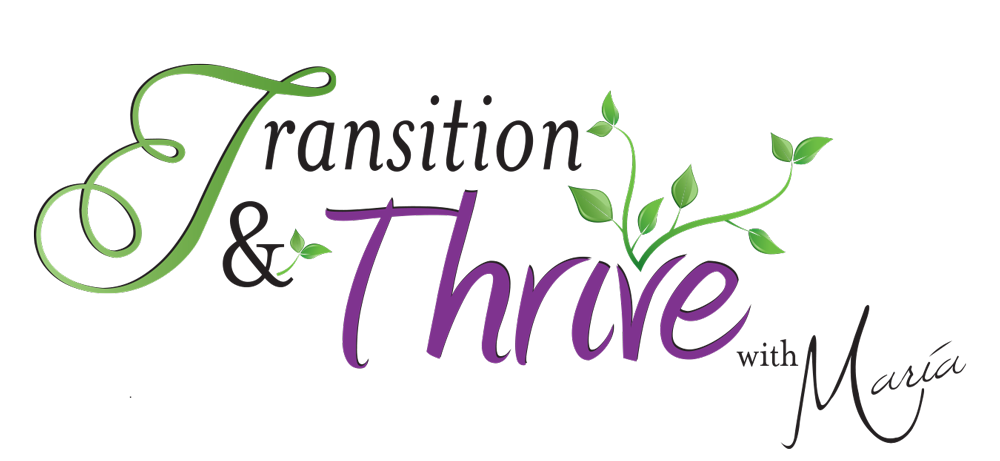Some call it stuck. You might describe it as stopped in your tracks, in a fog, or unable to think clearly about what to do next. You might even feel burned out or that the passion is gone. But, on the other hand, many women I speak with say they are just going through the motions every day and can’t find the courage to face a career change.
None of these feel good, especially when they describe how you feel about the work you do.
Choosing a career path is one of the most important decisions you make in life. And, most of your waking hours each year are spent at work! So think about it—doesn’t it make sense that you do everything you can to make these hours satisfying?
If you struggle to find happiness in your current line of work, you may be experiencing a temporary lack of motivation that will quickly disappear. Then again, it may be a signal that it’s time for a change. When that reality sets in, it can take courage to face.
After all, a career choice is more than just paying the bills and putting food on the table. You deserve to spend your days doing work you enjoy by aligning your career to your values and goals. So, don’t you agree that you owe it to yourself to make the career changes required to improve your life by shifting what you do during most of your waking hours?
Let’s outline a few steps that will help you to approach a career change with courage.
1 | Take Your Time When Facing a Career Change
A career change is an opportunity to consider your values and determine what matters most to you. This process takes patience. So, take the time you need to determine what’s most important to you in your career. Don’t forget that being fulfilled at work will affect how you feel about other areas of your life.
2 | Ask Questions
As organizations change, things can shift in the company’s culture and structure, impacting how you relate to your job, the team you work with, and the leadership overall.
Therefore, it’s crucial to explore what you value most now that things have changed. So, ask yourself some questions to get clear about what’s important to you. Here are some examples of what you could ask yourself:
- Why did you choose your career in the first place?
- What did you like about this line of work?
- How did the company fit into your initial goals?
- Have those elements of your job disappeared through changes that have taken place?
- Have you forgotten what drew you to this line of work in the first place?
- What do you wish you were doing instead?
- Is there a job within your current company that can better utilize your talents in a more exciting position?
- Who within your company can offer you advice about those opportunities?
3 | Create Your Vision
Once you’ve grounded yourself in your current values, the next step is to think about what you want next. If it’s not what you currently have, what do you want instead?
Creating a crystal-clear vision in technicolor detail helps to guide you along a path toward your dream career. However, this step can bring up all sorts of gremlins, doubts, negative self-talk, fears, and limiting beliefs, so be careful it doesn’t take you down a rabbit hole.
One way to prevent this unwanted excursion is to write your vision on paper (by hand or computer) in the present tense as if it has already happened. The energy of envisioning your dream life and career today will keep the “what ifs,” “I don’t think I cans,” and “that will never happens” at bay. Doubtful self-talk such as this can derail you and zap your courage to make a career change.
4 | Career Changes Require Small Steps
It is much easier to course correct from a small move forward than from a giant leap. So, break down your big vision into small action steps. While it may seem like the right thing to run away from your current career as fast as you can, a hurried approach may backfire.
Instead, if you take the time to think through your options and make the best decision possible, you’ll experience greater joy and fulfillment in the long run.
When it seems complicated, or you feel confused about your choices, don’t hesitate to seek the advice of others who have been where you are and successfully made the career change. Plus, an accountability partner can help you structure your goals in a way that allows you to attain regular feedback on your progress, so you know when you’re on track and when you’re off course.
5 | Respect Your Current Employer
When it’s time to leave, do so gracefully. As you move closer and closer to the career change you seek, continue to perform your current job to the best of your ability. You may need your current employer as a reference, and an attitude of service will increase your self-confidence as you prepare for a dramatic change in your life.
6 | Believe in Yourself
When you need to muster the courage to face a career change, you first need to build your confidence. Then, trust your instincts and your ability to succeed. Finally, you can achieve any goal that you set out to accomplish. So, tap into your experience with adversity and dust off the tools in your treasure chest to use now.
With proper planning and a hunger to succeed, you’ll experience the career success you crave. So keep your dreams in front of you, believe you can achieve them, and begin today to take the first steps toward the career change you deserve to enjoy.
Take the First Step
Don’t worry if your confidence has taken a hike because you lack the courage to face a career change. You’re not alone. When it’s a temporary dip, it’s not a big deal. But, when your faith and belief in yourself is gone for too long, that’s when your life really starts being impacted.
It’s time to do something about that.
Lack of confidence is often at the core of the struggle to find solutions. Because so many of my clients deal with this, I wanted to share this free training module called 14 Ways to Boost Your Confidence to help you too.
In this 40-minute FREE training, you’ll discover:
- The biggest difference between you and the most confident person you know.
- My top 14 ways to build your confidence skills, and
- The “test > practice > adapt-method” to hone your new expertise.

